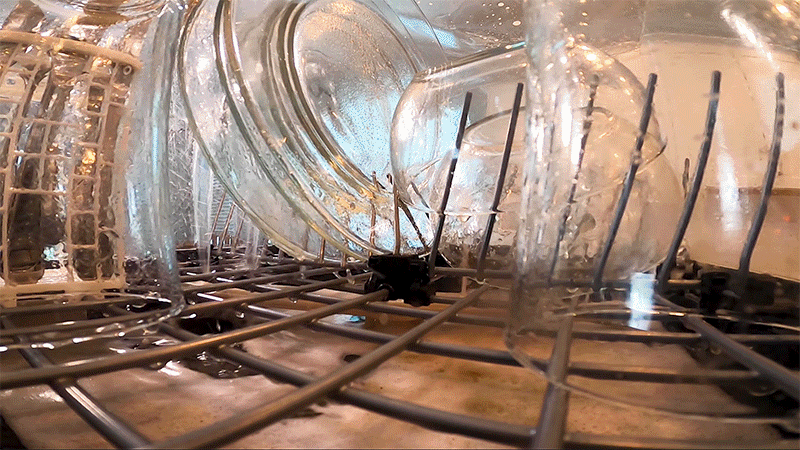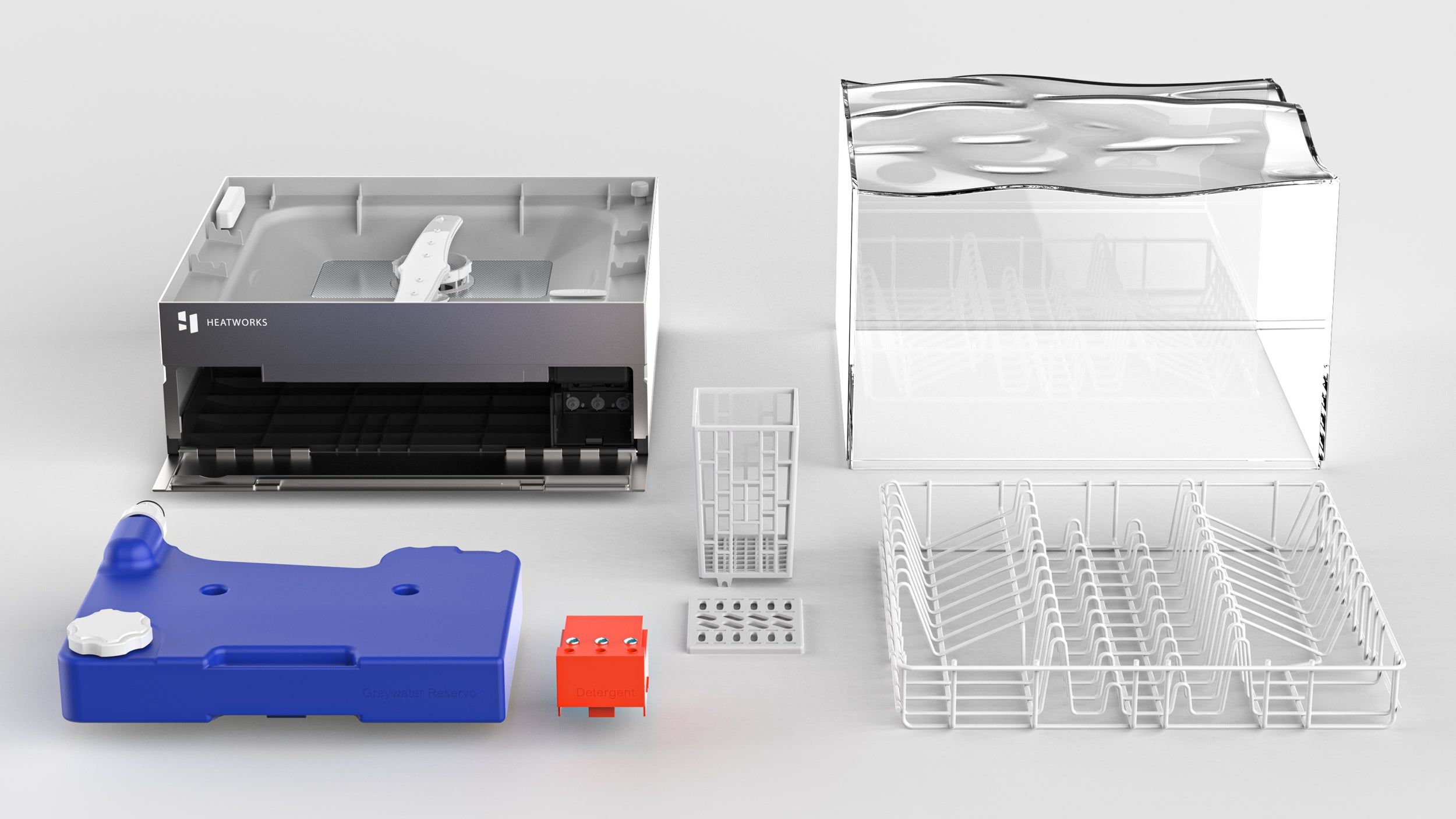There’s not a whole lot innovation happening in kitchen appliances these days (unless you count Wi-Fi connectivity, voice assistant integration, or the addition of an unnecessary screen). That’s why Heatworks’ Tetra countertop dishwasher that doesn’t require any plumbing connections was so exciting when it was first announced… back in 2018. Three years later, you can finally preorder one, but the wait isn’t over just yet.
Space-saving countertop dishwashers aren’t a new idea, but they’re often more hassle than they’re worth, requiring a kitchen faucet to be upgraded with an adaptor so a hot water supply hose can be temporarily connected every time you’ve got dishes to clean. The Heatworks Tetra eliminates plumbing hookups and hoses with a 3-litre water reservoir you fill and empty every time you do a load of dishes — roughly three sets of plates, cups, and cutlery. If you live alone or have a very small family, the Tetra will use less water and power than both a full-sized dishwasher or washing and rinsing a small number of dishes by hand in the sink.

All you really have to do is clear space on a flat surface like a countertop or table and plug the dishwasher in, but minimal installation requirements aren’t the Tetra’s only appeal. To heat the water in its reservoir, the dishwasher uses Heatworks’ innovative Ohmic Array Technology. Instead of passing current through a submerged heating element that then inefficiently transfers heat energy to water, the Tetra works more like a microwave.
Graphite electrodes pass a current directly through water to excite the minerals it contains which nearly instantly increase the water’s temperature. It’s a more energy-efficient approach, and the technology can precisely control the temperature of the water the entire time. Traditional dishwashers don’t include a way to heat water because they instead often source it from a home’s gas-powered water heater, but ideally we should all be trying to cut our dependence on natural gas as well.

Heatworks claims the Tetra “cleans 50% more dishes using 40% less water in 55% of the time than the leading dishwasher brand,” but that also depends on how often and how packed you run your dishwasher. The shortest cleaning cycle takes less than an hour to clean and dry dishes, while the standard mode pushes the cycle to a little over an hour before everything is ready to be put away.
It’s not as fast as the 10-minute wash cycle that was originally touted along with the dishwasher a few years ago, but there’s undoubtedly still a benefit to its compact size and minimal water usage if you live alone or with a single roommate. Heatworks promises the Tetra can be used for other purposes as well given how precisely it can control water temperature, like sterilizing baby bottles and kids’ toys, washing clothing, or even cooking foods like fish. Just be careful what order you do all those in.
The Tetra is finally available for preorder today from Heatworks’ website for $US400 ($541), but that’s a discounted price for early birds; the full retail price will be $US500 ($676). It’s definitely a pricier alternative to existing countertop dishwashers that usually run closer to $US300 ($406), and you’re going to need to factor in the cost of the Tetra’s proprietary detergent cartridges, too.
Although Heatworks promises the cartridges contain concentrated detergents so there’s less packaging waste and so the machine can create custom mixes of soaps and rinse agents on the fly for optimal cleaning, you’re still going to have to order replacements directly from the company after around 20 loads.
Pricing will be around 30 cents ($0.41) per wash, or about $US6 ($8) per cartridge, which is slightly more expensive than buying a bulk container of dishwasher pods. An accompanying app will provide advanced reminders when the current cartridge starts to run low, allowing users to easily reorder replacements, but as anyone who’s grappled with inkjet printers and ink cartridges knows, there’s always the chance you’re going to run out of detergent at the wrong time, and you can’t just run to the grocery store to grab some.
That’s possibly a dealbreaker for some, but for those who don’t have the room for a full-sized dishwasher in their kitchens, it might just be a minor inconvenience if it takes washing dishes off the daily to-do list.
